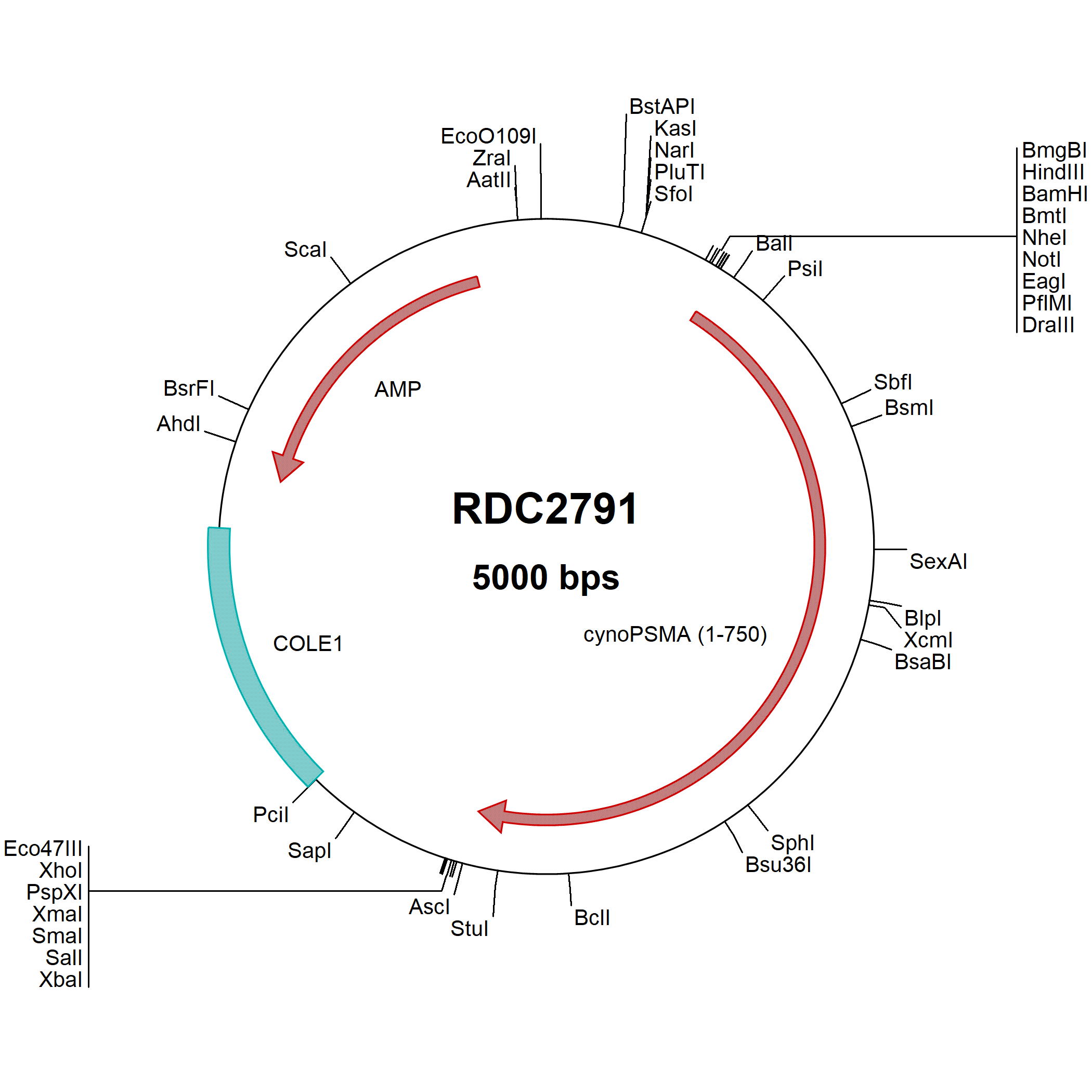PSMA/FOLH1/NAALADase I: cDNA Clones
Human prostate-specific membrane antigen (PSMA), a tumor marker in prostate cancer encoded by the FOLH1 gene, is a type II transmembrane zinc metallopeptidase. PSMA is most highly expressed in the nervous system, prostate, kidney, and small intestine. The enzyme is also known as glutamate carboxypeptidase II (GCPII), folate hydrolase 1, folypoly-gamma-glutamate carboxypeptidase (FGCP), and N-acetylated-alpha-linked acidic dipeptidase I (NAALADase I).
In the brain, PSMA hydrolyzes the neurotransmitter N-acetyl-Asp-Glu to produce glutamate, another neurotransmitter. Inhibition of brain PSMA activity is considered to be a promising approach for the treatment of neurological disorders associated with glutamate excitotoxicity, such as stroke, chronic pain, and amyotrophic lateral sclerosis. Intestinal PSMA hydrolyzes folylpoly-gamma-glutamates, facilitating the uptake of folate.
1 result for "PSMA/FOLH1/NAALADase I cDNA Clones" in Products
1 result for "PSMA/FOLH1/NAALADase I cDNA Clones" in Products
PSMA/FOLH1/NAALADase I: cDNA Clones
Human prostate-specific membrane antigen (PSMA), a tumor marker in prostate cancer encoded by the FOLH1 gene, is a type II transmembrane zinc metallopeptidase. PSMA is most highly expressed in the nervous system, prostate, kidney, and small intestine. The enzyme is also known as glutamate carboxypeptidase II (GCPII), folate hydrolase 1, folypoly-gamma-glutamate carboxypeptidase (FGCP), and N-acetylated-alpha-linked acidic dipeptidase I (NAALADase I).
In the brain, PSMA hydrolyzes the neurotransmitter N-acetyl-Asp-Glu to produce glutamate, another neurotransmitter. Inhibition of brain PSMA activity is considered to be a promising approach for the treatment of neurological disorders associated with glutamate excitotoxicity, such as stroke, chronic pain, and amyotrophic lateral sclerosis. Intestinal PSMA hydrolyzes folylpoly-gamma-glutamates, facilitating the uptake of folate.

